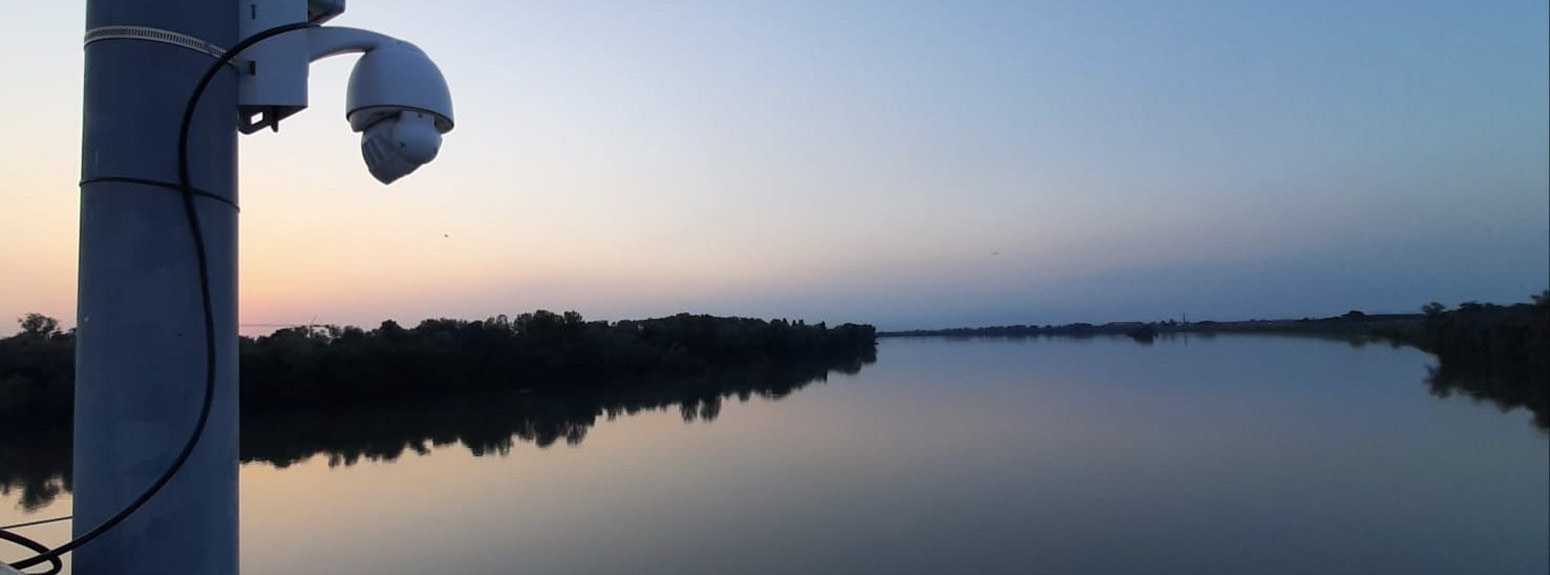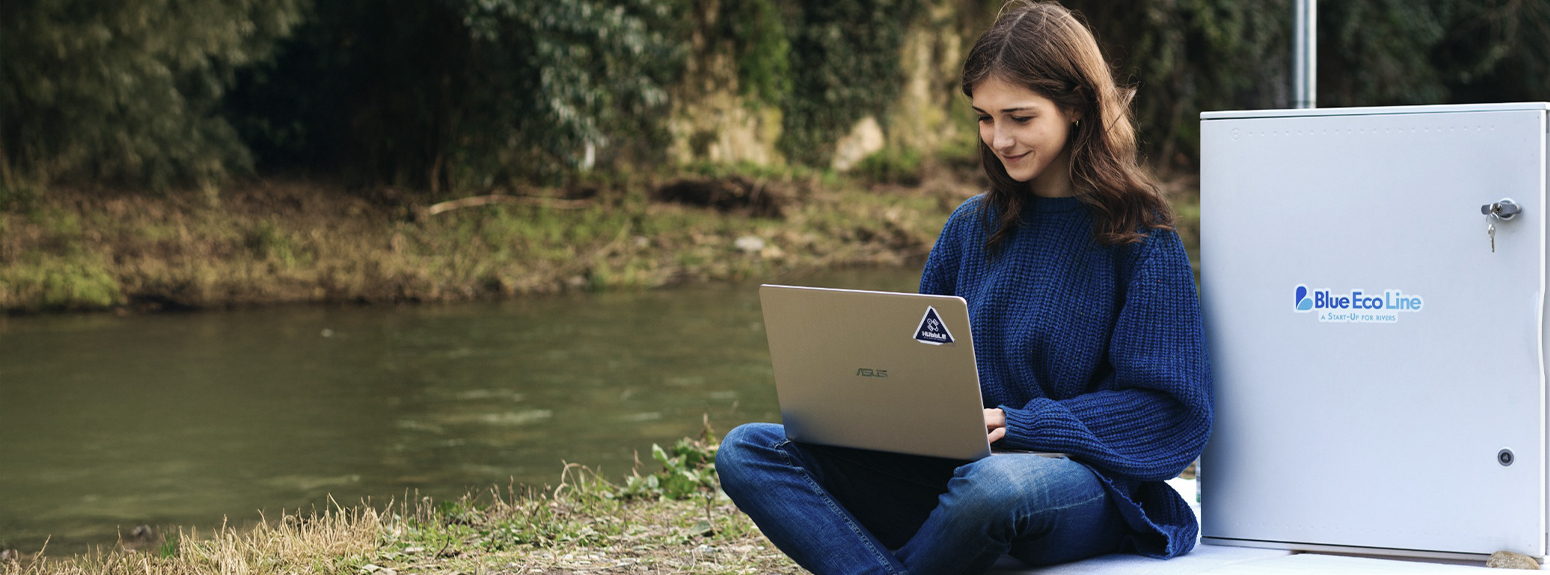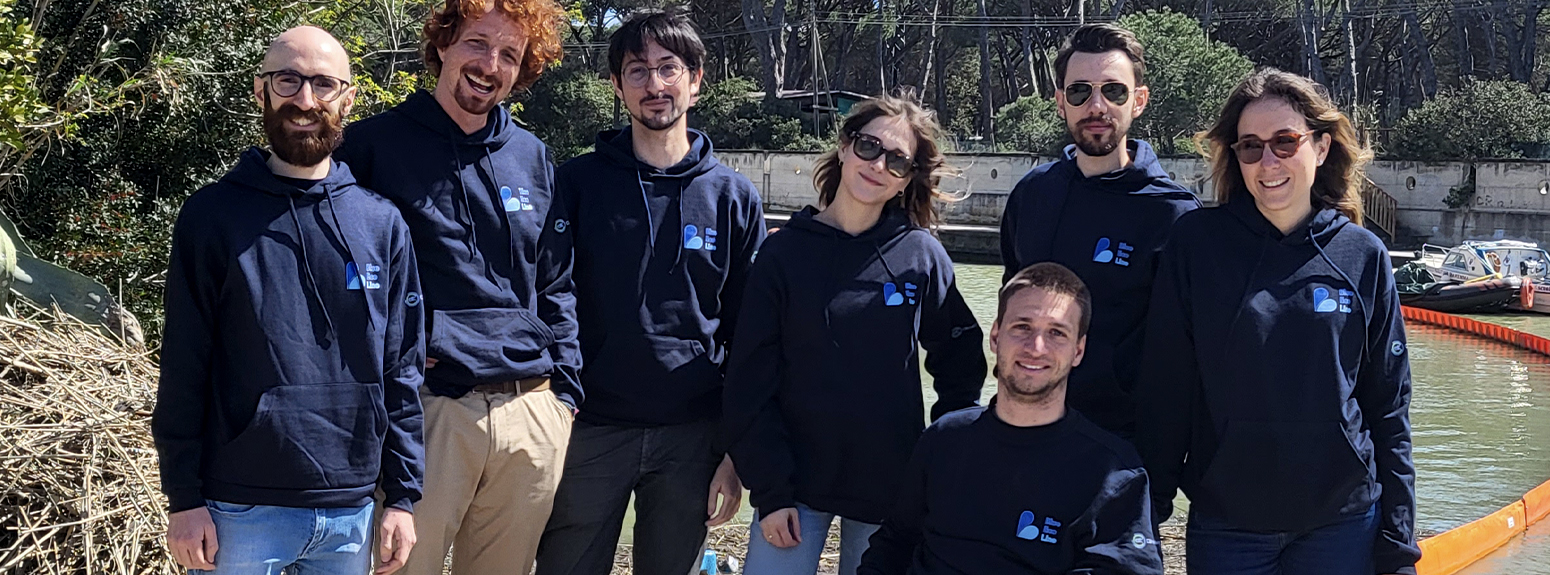Startup Tales | Blue Eco Line against marine plastic pollution
Founded in Florence in 2018, the innovative startup has developed two technologies to monitor the flow of plastic waste in watercourses and automatically transport it into carriageable containers.


Blue Eco Line against marine plastic pollution: River Cleaner and River Eye solutions
The 97% of the water on Earth is found in the oceans, “cradles” of biodiversity and essential for climate regulation since they absorb almost 40% of the CO2 emitted annually by human activities, In addition to providing half the oxygen essential for life on Earth. Nevertheless, the pollution of marine waters by plastic in 2018 was listed by UNEP (United Nations Environment Programme) among the first six major environmental emergencies to be addressed starting from a data: 80% of plastic waste comes from the mainland and is transported to the seas mainly by rivers.
Starting from this premise, the Florentine startup Blu Eco Line has developed two complementary innovative technologies to intercept plastic “at source” by exploiting Artificial Intelligence, computer vision, Big Data and IoT with the aim of safeguarding the environment. The first, called River Cleaner, automatically ‘locks’ waste in waterways, then takes it to the carriageable waste containers thanks to conveyor belts. The second, called River Eye, is a system of constant monitoring that, acting as an “eye”, allows to obtain a huge amount of data on plastic flows in watercourses.
Blue Eco Line: from sustainable business idea to startup foundation
The sustainable business idea that led to the development of these technologies and the foundation of Blue Eco Line in December 2018 in Florence is therefore the result of a long analysis work conducted by Lorenzo Lubrano Lavandera - mechanical engineer with specialization in electrical and automation as well as CEO of the startup -, Camilla Cantiani - Information Technician and Information System Manager of the young Tuscan reality - and by Michael Mugnai - specialized in mechanics and robotics - currently completing a PhD in perceptive robotics at the Sant’Anna University of Pisa.
The three young people, all under 30 at the time, met during their respective academic courses at the University of Florence and, wondering what they could do to combine an engineering solution with an environmental one, have developed a prototype of River Cleaner with the aim of making the cleaning process of watercourses transparent.
Development of the River Cleaner prototype and project launch
Developed the prototype, the three then co-founded the innovative startup Blue Eco Line by patenting the solution developed. The first significant result, recalls Lubrano, “was to enter in 2019 in Hubble, acceleration program of Nana Bianca realized in collaboration with Fondazione CR Firenze and Fondazione Per La Ricerca e L’Innovazione of the University of Florence”. “We also had a first customer who allowed us to continue developing our idea - adds the CEO of Blue Eco Line -, and at the same time we have started to interact with Public Administrations as Municipalities and Reclamation Consortia that represent the target for these projects”.
The first positive feedback led the startup to start developing the project, with the pandemic making everything more complex because the PA had other priorities. “In this phase - explains Lubrano - we did not stand still and we intensified R&D activities, realizing how our goal was to work on the development of an automated system that using video cameras, AI and computer vision, would enable conveyor belts to extract waste, plastic and non-plastic, which are then separated from the sorting centers”.


Blue Eco Line’s growth and victory at the Oceathon
Also in 2020, Blue Eco Line participated and won the first Oceathon, an Italian hackathon dedicated to the protection of the sea organized by UNESCO and the CMCC Foundation with the support of Hack for Italy and the company active in the production of renewable energies E.ON that, In addition to supporting the project economically, also provided Blue Eco Line with a team of experts to work on the realization of the idea and its subsequent marketing.
“An excellent opportunity to validate the project and understand how it was received the product - says the CEO of the young Tuscan reality - to which we presented ourselves with a team of three people inside the team leaving other positions open so that we could meet new guys interested in our idea. This choice has allowed us to expand the Blue Eco Line team quickly with a variety of interdisciplinary skills”.
Environmental monitoring and detection of plastic amounts in rivers
When the startup started developing River Cleaner, however, “we found ourselves in a situation where we needed to figure out where to place the plants, understanding that to do it efficiently we had to be ‘guided’ by data that didn’t exist” says Lubrano.
In fact, the detection of the amount of plastic present in river courses at European level began with the preparation of the RIMMEL protocol by the EU in 2016. Surveys by human operators who conducted a visual sample census on some rivers, followed by interpolation of data to determine the flow of floating objects transported. “On the one hand, this type of survey is unreliable because it is impromptu; On the other hand, it creates a gap in terms of data harmonization and comparison as it is based on visual observations by individual operators”, explains the CEO of Blue Eco Line.
“Our will - continues Lubrano - consisted in realizing a solution that could be distributed on a large scale and comparable. A ‘fixed’ system from which to obtain reliable data on the transport of plastic in watercourses, which varies particularly according to the days”. Therefore, in 2021 the Tuscan startup decided to use the technology on which plastic waste collection plants are based to develop a constant monitoring system. “We have also gone down this road for two reasons: to talk to the public authorities by presenting transparent data and, at the same time, to make up for the absence of data in order to understand the ‘dimensions’ of the problem”, underlines the CEO of Blue Eco Line.
What are and how do they work River Cleaner and River Eye, the two technologies developed by Blue Eco Line
River Eye, the monitoring system for floating plastic waste
Although River Cleaner “comes” before River Eye, the floating plastic waste monitoring system is critical to watercourse cleaning technology. In fact, explains Lubrano, “River Eye is based on an artificial vision system that allows us to determine how much plastic is transported by each watercourse and works thanks to centrals located on the territory, from which video cameras are taken, which film the watercourse and extract frames”. “The frames - continues the CEO of the Tuscan startup - are ‘passed’ to an artificial intelligence software that we have developed internally able to detect plastic waste. In doing so, we can estimate the amount of plastic transported from rivers to the seas and also the correlation with rainfall, seeing the seasonal or annual trend of the phenomenon”.
River Eye provides transparent data on plastic transport in watercourses stored in cloud, and enables Blue Eco Line to identify critical areas. “For example - explains the CEO of the Tuscan reality - to realize a plant of collection of the plastic wastes on a river like the Arno is particularly demanding. Thanks to River Eye, we can ‘see’ if the flow of plastics comes from a secondary tributary and place a collection facility there, with benefits in terms of both efficiency and cost containment”. A system that has proved to be valid since the first ‘field’ tests, with Blue Eco Line which carried out and closed a monitoring on three water courses with the Veneto Region last year, and is starting new ones in collaboration with several Universities and Bodies between Lombardy, Veneto and Tuscany.
River Cleaner, the plastic waste collection system
River Cleaner, on the other hand, is the system for the effective collection of plastic waste whose positioning takes place on the basis of the measurements made through River Eye. In concrete terms, the solution developed by Blue Eco Line consists of an automated waste collection plant based on a particularly advanced system of neural networks developed by the startup. Located on the banks of rivers, River Cleaner has no impact on fauna and landscape as it is composed of a barrier submerged at about 60 cm depth that does not interfere with human activities and does not hinder the passage of ships and fish. After intercepting the waste, plastic and non-plastic, through the conveyor belts River Cleaner “unloads” them in the bins for carriageable waste thus placing them in traditional urban and extra-urban disposal systems.
Both innovations are also powered by photovoltaic panels and renewable energy, thus in line with the sustainability that characterizes the entire project.
The maturity of Blue Eco Line: from the success in the “E-qube Startup&idea Challenge” to the participation to Up2Stars
Returning to the growth of Blue Eco Line, another key step goes back to 2022 when, after responding to the third edition of the call for startups “E-qube Startup&Idea Challenge” promoted by Estra, in collaboration with the startup accelerator Nana Bianca and StartupItalia - publisher and organizer of StartupItalia Open Summit - presenting its idea, Blue Eco Line ranked second in the contest attended by 174 participants.
“An especially interesting prize since we also had the opportunity to do a path of open innovation with the multiutility Estra that led us to the financing of the first River Cleaner plant in Grosseto” points out Lubrano, that in 2023 was included among the hundred innovators under 30 of the Forbes Italy ranking in the Social Impact category.
In addition, in 2023 Blue Eco Line was selected to participate in the Up2Stars acceleration program - organized by Intesa Sanpaolo and Intesa Sanpaolo Innovation Center in collaboration with the Gellify innovation platform - in the Blue Economy vein. “A very interesting path, especially because it allows to compare with other realities active in the same sector focused on different aspects: one of the strengths of vertical programs, in which a problem faced by one startup can often be the solution for others”, Lubrano explains.
Also from the point of view of mentoring Up2Stars was an important step because it has effectively made available to the participating realities reference figures with specific technical skills. “In case of doubts or perplexity - highlights the CEO of Blue Eco Line - besides the purely theoretical part mentors have also offered us their perspective, and data hand tried to guide certain choices for the development of the startup”.
“Having to deal with mentors who come from certain company realities in addition to meeting my appreciation is really an advantage of paths like Up2Stars, where you are actually confronted with professionals in the field who have a well-defined way of working”, adds Lubrano
Blue Eco Line has also entered the portfolio of Business Development of Intesa Sanpaolo Innovation Center, a service that supports innovative startups and SMEs in their search for business partners and investors interested in the innovations they propose. “Until now - explains Lubrano - we have rarely interloquito with the Intesa Sanpaolo Innovation Center, but now that we have challenging objectives the intention is to strengthen it by taking advantage of the opportunities offered by the company and the willingness to help us already expressed”


The future of Blue Eco Line: from the start of the pilot plant to the first fundraising
A logical step because, after having carried out several monitoring and registered the trademarks and patents, the start of the first pilot plant River Cleaner in Grosseto - on the banks of the emissary San Rocco - is imminent, and will also serve to validate the project of the startup.
“The plant has been financed and already built in the workshop, so we have no choice but to assemble the device and refine it further, after which we will launch a fundraising campaign”, says Lubrano. “The intention - specifies the CEO of Blue Eco Line - is to launch a round to start to scale our business, opening it initially to ‘leading investors’ and then allowing private investors to join it, because we believe that enabling people who want to solve such a major problem to be involved in the development of solutions is particularly important”.
In addition, the particularly advanced neural network system developed by Blue Eco Line lends itself to other applications. In fact, besides collaborations with large companies for the realization of products with 100% recycled plastic in the B2B branch, “we are receiving several requests to apply our technology in other areas such as real-time monitoring for the management of emergencies caused by extreme and increasingly frequent weather events, using the image-based recognition system to monitor certain parameters on the one hand, and decide how to manage the aid on the basis of objective data on the other’, Lubrano underlines.
Finally clarifying how the priority is to ‘ground’ the first River Cleaner plant and realize others, as well as creating a system for permanent monitoring of plastic waste in rivers similar to that which controls air quality.
